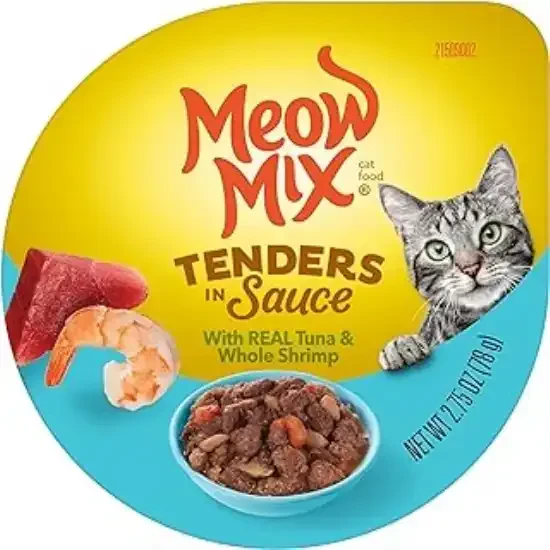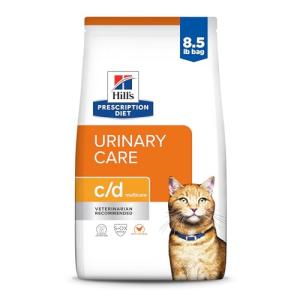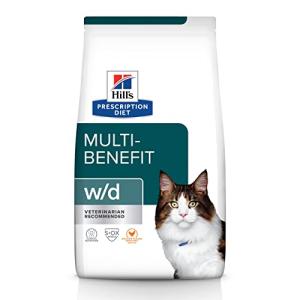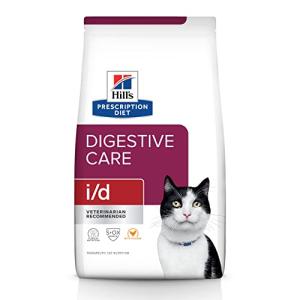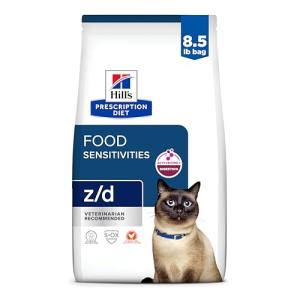Standing in the pet food aisle, surrounded by a dizzying array of bags and cans, each promising miraculous benefits for your feline friend? Overwhelmed by labels boasting everything from "shiny coats" to "ultimate digestibility," feeling like you're deciphering a secret feline language? If so, you are most certainly not alone. Navigating the world of cat food can often feel less like a straightforward choice and more like traversing a complex and sometimes baffling feline food maze. From dry kibble to wet food, raw diets to homemade concoctions, the sheer volume of options available to today's cat owner can be, quite frankly, overwhelming. But amidst the confusion, remember this crucial point: the food you choose to fill your cat's bowl is far more than just sustenance; it's the very foundation upon which their health, energy levels, and overall well-being are built. Think of it as the fuel that powers their purrs, fuels their zoomies, and sustains their long, luxurious naps in sunbeams. Your cat's diet profoundly impacts every aspect of their life, from the glossiness of their coat and the spring in their step to the efficiency of their digestion, the strength of their immune system, and ultimately, their longevity and quality of life. Proper nutrition isn't merely a matter of aesthetics or convenience; it's a preventative measure, a proactive step in safeguarding your feline companion against a range of potential health problems down the line. Choosing the right food is an investment in their future health, a commitment to providing them with the building blocks they need to thrive, not just survive. So, the pivotal question remains: what should you be putting in your cat's bowl? Let's embark on a journey to decode the sometimes-mysterious world of cat food, to unravel the complexities of feline nutrition, and to empower you with the knowledge and confidence to find the purrfect plate for your unique feline friend. Together, we will navigate the different types of cat food available, delve into the essential nutritional needs that are unique to cats, learn how to decipher the often-cryptic language of food labels, address the nuances of life stage and special dietary requirements, and ultimately, equip you to make informed and confident decisions, ensuring your cat receives the optimal nutrition for a long, healthy, and purrfectly happy life.
Stepping into the cat food aisle can feel like entering a foreign land, a landscape dominated by countless varieties, textures, and promises. To effectively navigate this terrain, it's essential to first understand the different types of cat food available, each with its own set of characteristics, advantages, and disadvantages. Let's begin our exploration with dry cat food, often referred to as kibble. This is perhaps the most ubiquitous and widely recognized form of cat food, characterized by its processed nature, extruded form, and notably low moisture content. Dry food offers undeniable convenience, a significant factor in its popularity amongst cat owners. It is remarkably easy to store, requiring no refrigeration and boasting a long shelf life. Measuring out portions is a breeze, and it can be conveniently left out for free-feeding, allowing cats to graze throughout the day, mimicking their natural eating patterns to some extent. Furthermore, some proponents of dry food suggest potential dental benefits, particularly for certain formulations and kibble sizes. The crunchy texture of kibble, in theory, can help to scrape plaque and tartar from teeth as the cat chews, although the extent of this dental benefit remains a subject of debate and is not a substitute for regular dental care. Economically, dry food is generally the most cost-effective option compared to other types of cat food, making it an appealing choice for budget-conscious cat owners. However, dry food also presents certain drawbacks that are crucial to consider. Its primary limitation lies in its lower moisture content. Cats, by nature, have a lower thirst drive than many other animals, and historically, they have derived a significant portion of their hydration from their prey. Relying solely on dry food can, therefore, contribute to chronic dehydration if not actively supplemented with fresh water intake. This is particularly concerning as proper hydration is vital for kidney health and preventing urinary tract issues in cats. Dry food often tends to be higher in carbohydrates compared to wet food. While cats do require some carbohydrates for energy, their primary nutritional needs are centered around protein and fat. Excessive carbohydrates in the diet, particularly less digestible sources, can be less biologically appropriate for obligate carnivores like cats. Finally, palatability can be a concern with some dry food formulations. While many cats readily consume kibble, others, particularly picky eaters or those accustomed to wet food, may find it less appealing in terms of taste and texture.
In contrast to the dryness of kibble, wet cat food, typically available in cans or pouches, offers a dramatically different approach to feline nutrition, prioritizing moisture content and palatability. Wet food is characterized by its significantly higher moisture content, typically ranging from 70% to 80%, mimicking the natural moisture content of prey animals and providing excellent hydration support. This high moisture content is a major advantage, particularly for cats who are prone to dehydration or have a history of urinary tract issues. Wet food is generally recognized as being higher in protein and lower in carbohydrates compared to dry food. This nutritional profile aligns more closely with the natural dietary needs of obligate carnivores, providing a more biologically appropriate balance of macronutrients for cats. Palatability is a significant strength of wet food. Its moist texture and often meat-rich aroma and flavor are highly appealing to most cats, even those known to be finicky eaters. The variety of textures and flavors available in wet food, ranging from smooth pates to chunky morsels in gravy or jelly, further enhances its appeal and allows for catering to individual feline preferences. However, wet food also presents certain practical considerations. It is generally more expensive than dry food, potentially posing a budgetary concern for owners of multiple cats or those feeding large portions. Convenience for free-feeding is limited, as wet food can spoil relatively quickly if left out at room temperature for extended periods. Opened cans or pouches require refrigeration to maintain freshness and prevent spoilage, adding an extra step to meal preparation and storage.
Venturing further from conventional commercial cat food, we encounter raw cat food, a dietary approach that seeks to emulate the ancestral diets of wild felines, returning to a more "natural" feeding philosophy. Raw cat food typically consists of uncooked meat, bones, organs, and a carefully selected array of supplements, aiming to mimic the nutritional composition of a cat's natural prey. Proponents of raw feeding often claim a range of potential benefits, centered around its alignment with feline biology. They argue that raw food, being high in protein and moisture and naturally low in carbohydrates, mirrors the diet cats evolved to thrive on, potentially leading to improved digestion, enhanced coat health, and increased energy levels. However, it's important to acknowledge that much of the evidence supporting these claims is anecdotal, and robust scientific research in this area is still developing. While some cats may find raw food inherently more palatable due to its fresh meat content, raw feeding also carries significant risks and requires meticulous attention to detail to be done safely and effectively. The most prominent concern is the potential for bacterial contamination. Raw meat, by its very nature, can harbor bacteria such as Salmonella and E. coli, posing a risk of foodborne illness for both cats and humans handling the food. Strict hygiene practices in preparation, handling, and storage are absolutely crucial to minimize this risk. Nutritional imbalances are another significant concern with raw feeding. Simply feeding raw meat alone is not nutritionally complete for cats. A properly formulated raw diet requires careful balancing of meat, bones, organs, and specific supplements to ensure it meets all of a cat's essential nutrient requirements. DIY raw food recipes, if not formulated by a veterinary nutritionist, carry a high risk of nutritional deficiencies or imbalances, potentially leading to serious health problems over time. While pre-made commercial raw cat food brands are available, offering convenience and formulated recipes, they are generally more expensive than other types of cat food and still require careful handling and storage to maintain safety. Furthermore, the veterinary community often expresses concerns regarding the safety and nutritional completeness of raw diets, particularly when homemade or not properly formulated. Veterinarians generally recommend commercially prepared, balanced diets that have undergone rigorous quality control and nutritional testing, due to the inherent challenges and risks associated with raw feeding.
Taking the concept of dietary control even further, some cat owners explore homemade cat food, choosing to prepare their cat's meals from scratch at home. Homemade cat food can be prepared using either cooked or raw recipes, offering the allure of complete control over ingredients and perceived customization. Proponents of homemade diets often cite the ability to select high-quality, human-grade ingredients and tailor recipes to specific dietary needs or allergies as key advantages. While homemade diets can potentially offer these benefits, it is absolutely crucial to acknowledge the significant challenges and inherent risks involved in ensuring nutritional completeness and safety. Preparing nutritionally complete and balanced homemade cat food is an extremely time-consuming endeavor, requiring significant research, meticulous planning, and in-depth nutritional knowledge. Simply cooking or preparing meat and vegetables at home is not sufficient to meet a cat's complex nutritional needs. Consultation with a veterinary nutritionist is strongly recommended, if not essential, to formulate recipes that are truly balanced and safe for long-term feeding. Without expert guidance, homemade diets carry a high risk of nutritional deficiencies or imbalances, potentially leading to serious health issues over time. Raw homemade cat food, in addition to the nutritional complexity, also carries the same bacterial contamination risks as pre-made raw food, requiring stringent hygiene practices and careful handling. Furthermore, homemade cat food, particularly when using high-quality ingredients and necessary supplements, can often be more expensive than commercially prepared cat food, both in terms of ingredient costs and the time investment required for preparation. For these reasons, and due to the high risk of nutritional inadequacies if not expertly formulated, veterinarians generally recommend commercially prepared, balanced cat food diets as the safest and most reliable option for most cat owners, unless specifically advised otherwise by a veterinary nutritionist for a specific medical reason.
